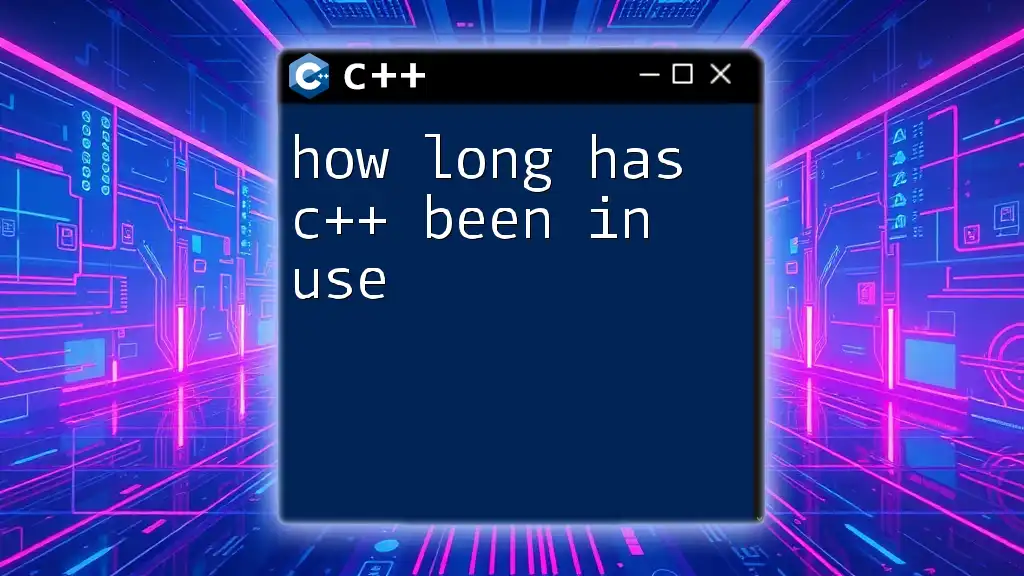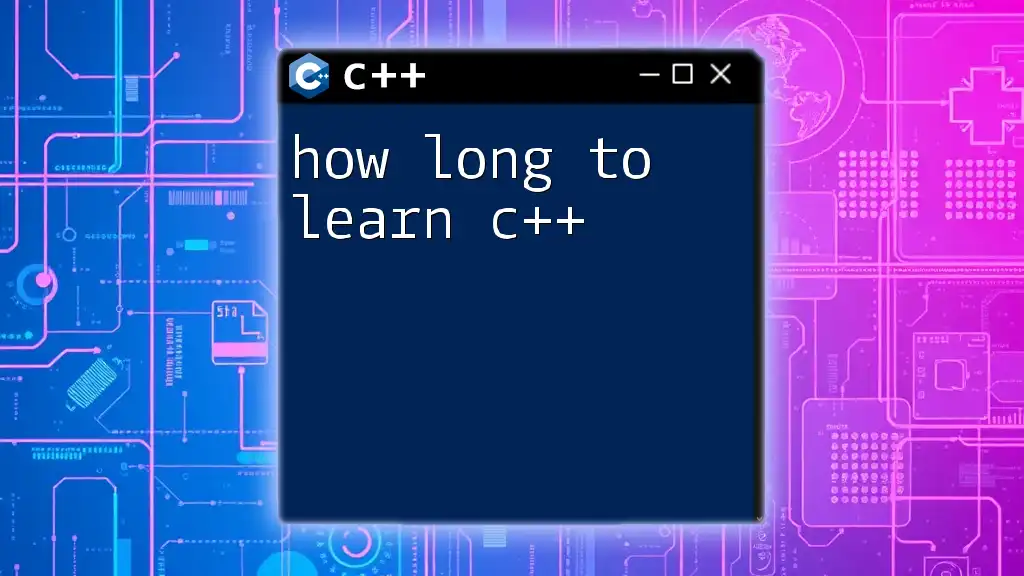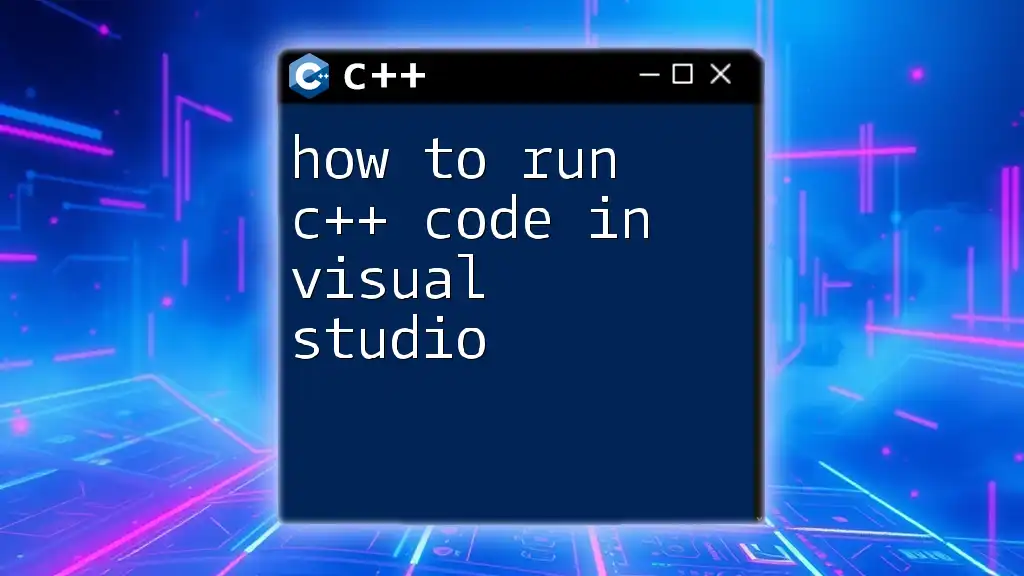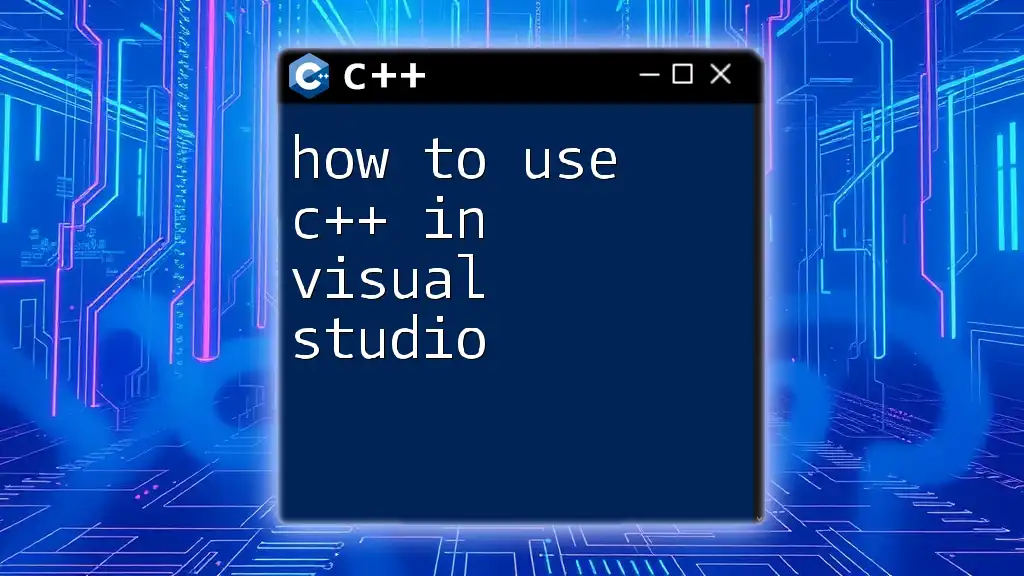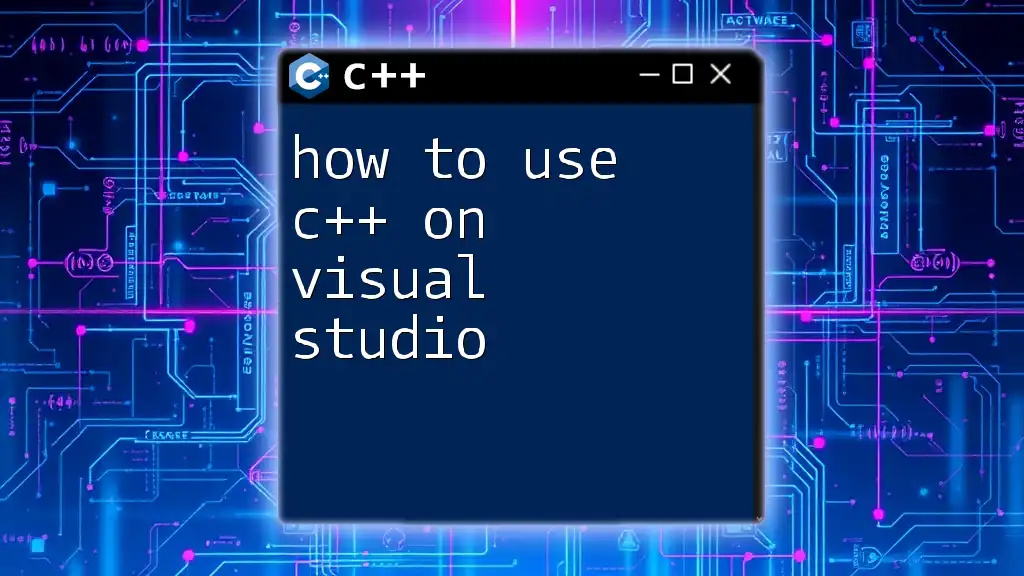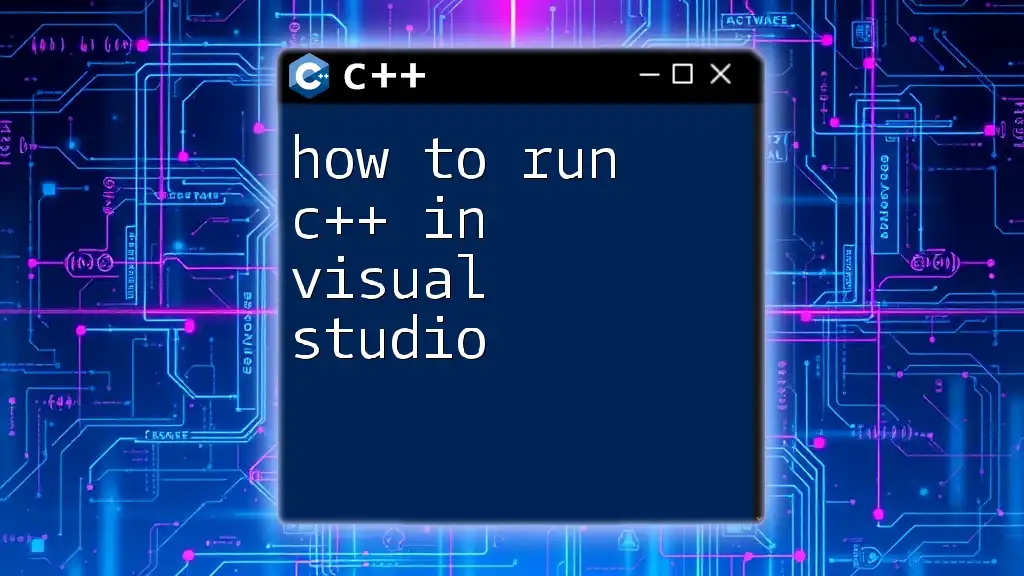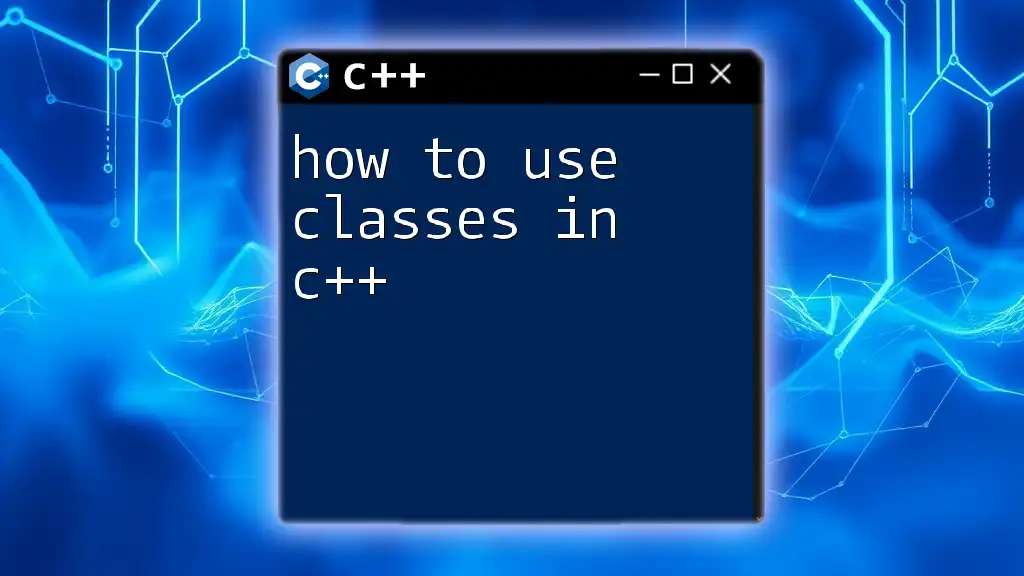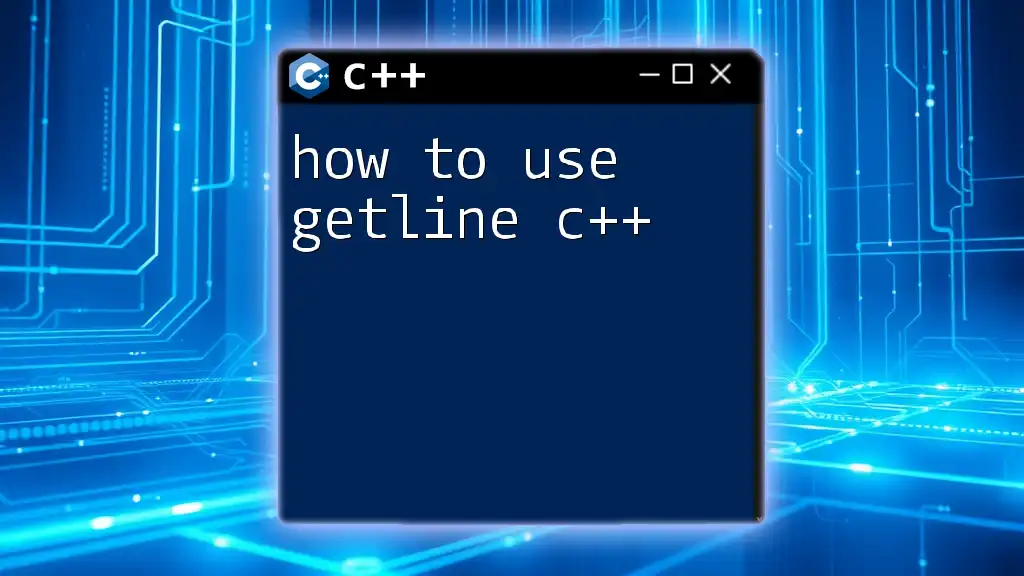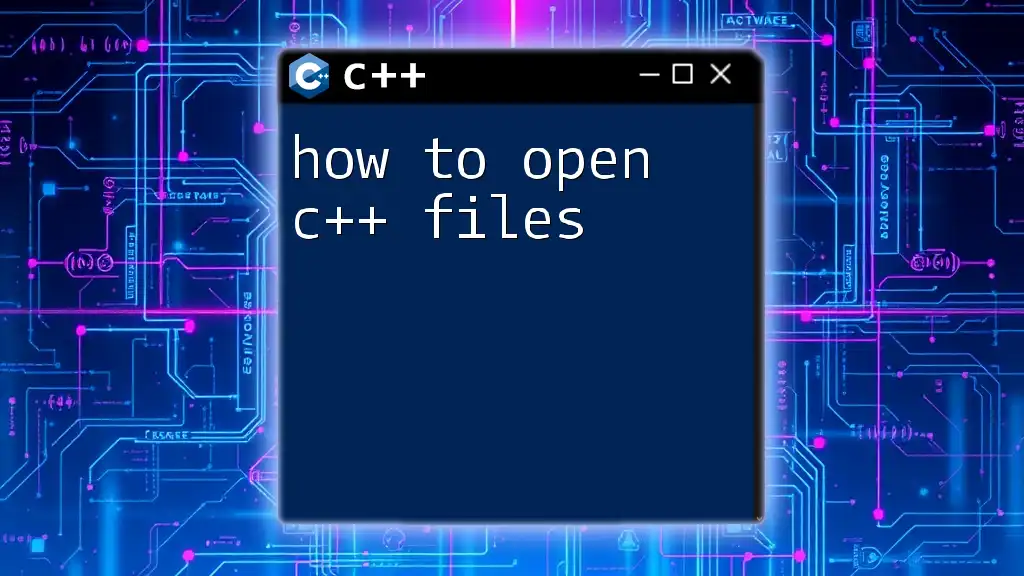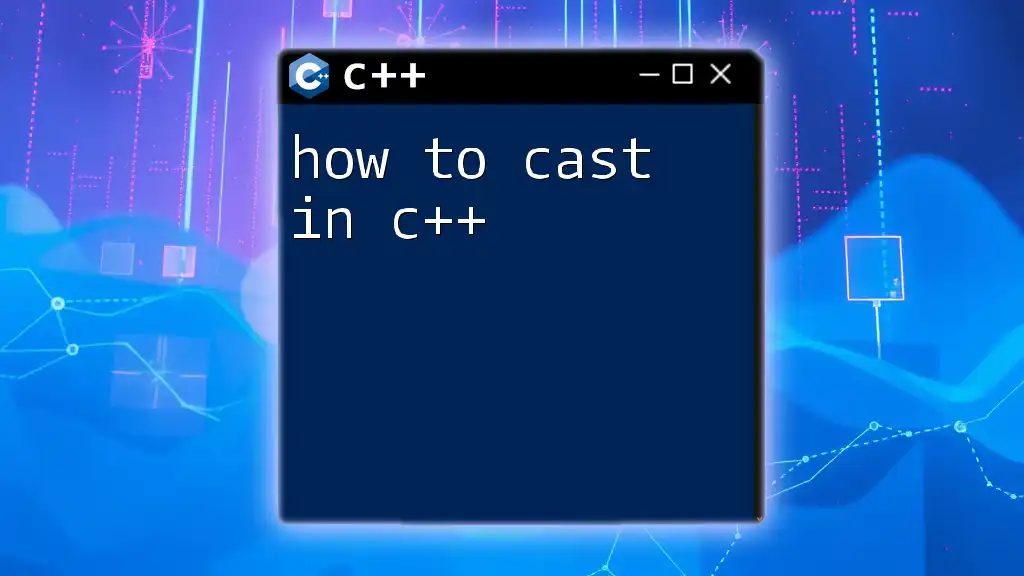C++ has been in use since its creation in 1979 by Bjarne Stroustrup, evolving significantly through the years to become a powerful language for system and application development.
Here's a simple code snippet in C++:
#include <iostream>
int main() {
std::cout << "Hello, World!" << std::endl; // This outputs "Hello, World!"
return 0;
}
The Birth of C++
When Was C++ Made?
The C++ programming language was created by Bjarne Stroustrup at Bell Labs in Murray Hill, New Jersey, during the late 1970s and early 1980s. Stroustrup initially aimed to enhance the C programming language by adding features that support object-oriented programming, a concept that was rapidly gaining traction within the programming community at that time.
The first version of C++, referred to as C with Classes, was developed in 1979, followed by a more refined version, C++ 1.0, released in 1983. This foundational work was built upon the necessity for a language that not only maintained the efficiency and performance of C but also provided the higher-level abstractions compatible with modern programming requirements.
What Were the Initial Goals?
C++ as an Extension of C
C++ was fundamentally designed to be an extension of C. Stroustrup's goal was to incorporate features that enhanced the usability of the language while retaining its efficiency. By doing this, he created a language that appealed to both system programmers and application developers.
Object-oriented Programming (OOP)
A key focal point during the development of C++ was the shift from procedural to object-oriented programming. C++ adopts essential principles such as encapsulation, inheritance, and polymorphism, making it possible to design software in a more modular and reusable manner. This led to a paradigm shift that changed how software development was approached, emphasizing data integrity and code organization.
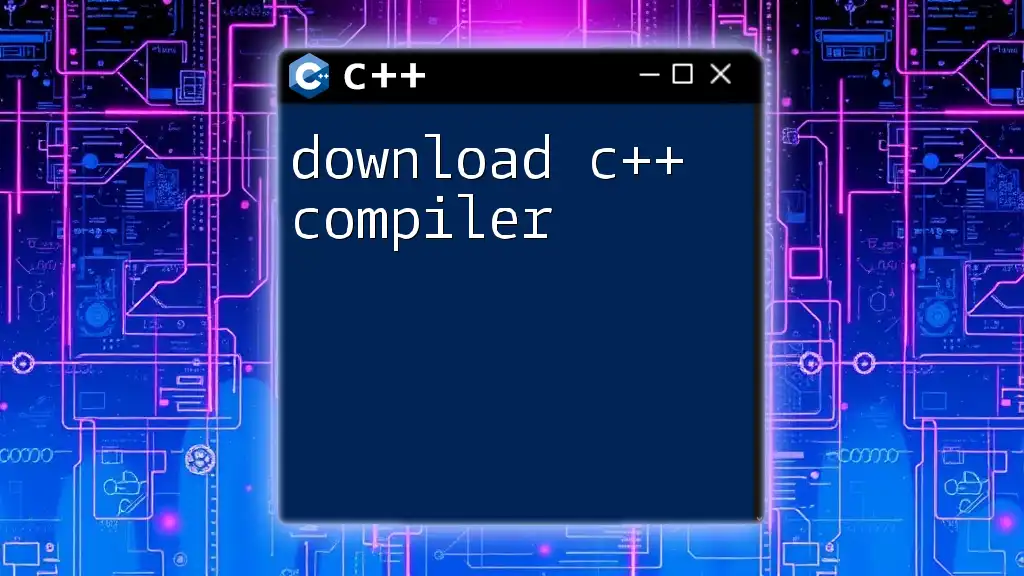
C++ Evolution Over the Years
The Early Days of C++
From 1983 to 1985, C++ evolved significantly, leading to the official release of C++ 1.0. During this time, various new features were introduced, such as basic classes, derived classes, and basic inheritance. As developers began adopting C++, they realized its potential to simplify code management and provide a better structure for large-scale projects.
With the publication of the first edition of "The C++ Programming Language" in 1985, the community gained a significant resource that fostered understanding and application, encouraging broader adoption of C++ across multiple domains, including systems programming, application development, and even gaming.
The Standardization of C++
The development of C++ reached a pivotal moment with the establishment of the C++98 standard, finalized in 1998. This formal standardization process involved numerous contributions from the community and aimed to unify the various C++ dialects into one coherent language. Key features included the introduction of templates, exception handling, and namespaces.
Following this, C++03 came as a revision in 2003, which addressed some defects and provided minor improvements based on the user experience.
Evolution Continues: C++11 to Present
The release of C++11 in 2011 marked a revolutionary shift in the language's capabilities. This version introduced features such as lambda expressions, nullptr, and smart pointers, which made memory management easier and safer. C++11 not only improved the feature set but also enhanced language usability, leading to less verbose code while maintaining high performance.
Subsequent versions, including C++14, C++17, and the more recent C++20, continued this trend. With each version, improvements aimed at readability, performance optimization, and modern programming practices were implemented:
- C++14 refined features introduced in C++11, focusing on usability.
- C++17 brought several new features, including structured bindings and std::optional, enhancing code expressiveness.
- C++20 introduced concepts, range-based algorithms, and a more powerful type system, making advanced programming paradigms simpler and more accessible.
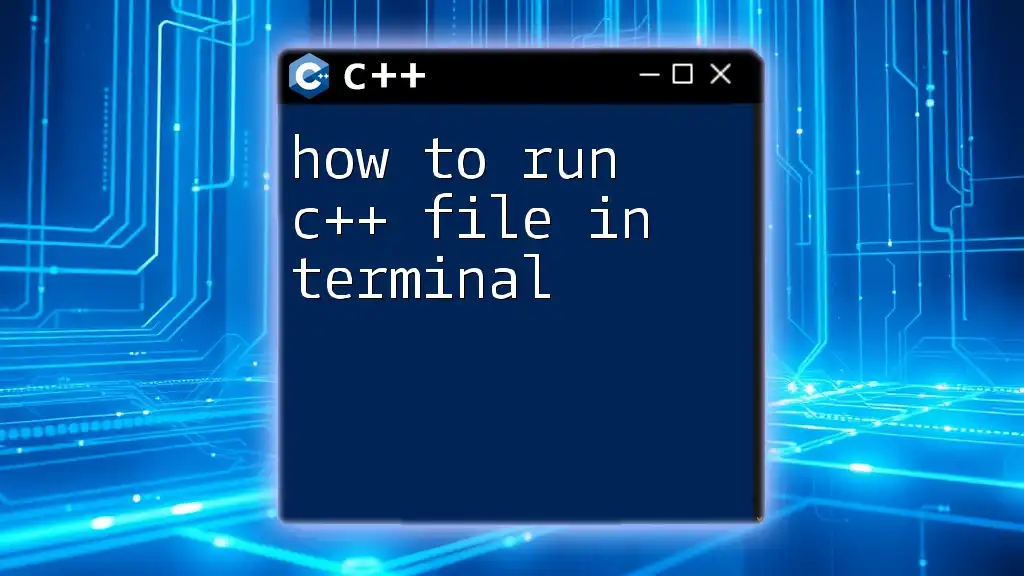
C++ in the Modern Era
Current Applications of C++
C++ consistently maintains its relevance through its extensive use across various industries. Major applications include:
- Game Development: Many popular game engines like Unreal Engine leverage C++ for its performance and flexibility.
- Embedded Systems: C++ is widely used in systems with resource constraints, where efficiency is critical.
- High-Performance Applications: Financial systems, simulation software, and real-time systems often utilize C++ due to its low-level capabilities that facilitate performance tuning.
Popularity and Community
The C++ community thrives on collaboration and knowledge sharing. Online platforms such as GitHub, Stack Overflow, and dedicated forums foster vibrant discussions and open-source projects. These interactions inform users about best practices, new features, and optimization techniques, encouraging continuous learning.
Current trends indicate a growing interest in modern C++, focusing on improving safety and developer experience. The emphasis on utilizing C++ standard libraries and features from `C++17` and `C++20` shows that C++ is evolving, catering to modern development demands while ensuring backward compatibility.
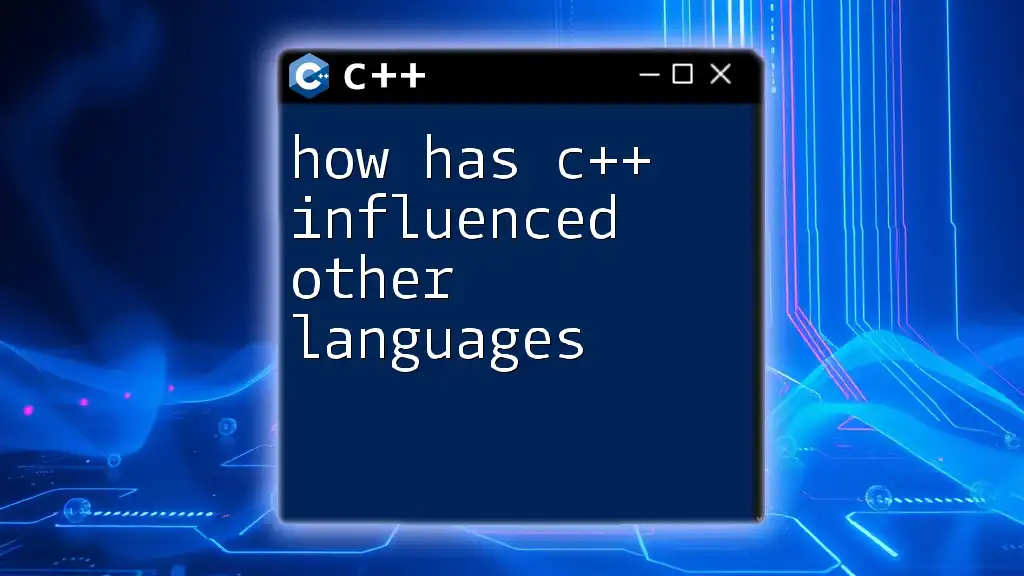
Conclusion
The history of C++ reflects a journey of continuous improvement and adaptation. From its inception in the late 1970s to its current standing as a robust and widely-used programming language, C++ has shown resilience and flexibility to meet the ever-changing needs of developers. Its ongoing evolution suggests a bright future, with the language remaining a staple in the programming world for years to come.
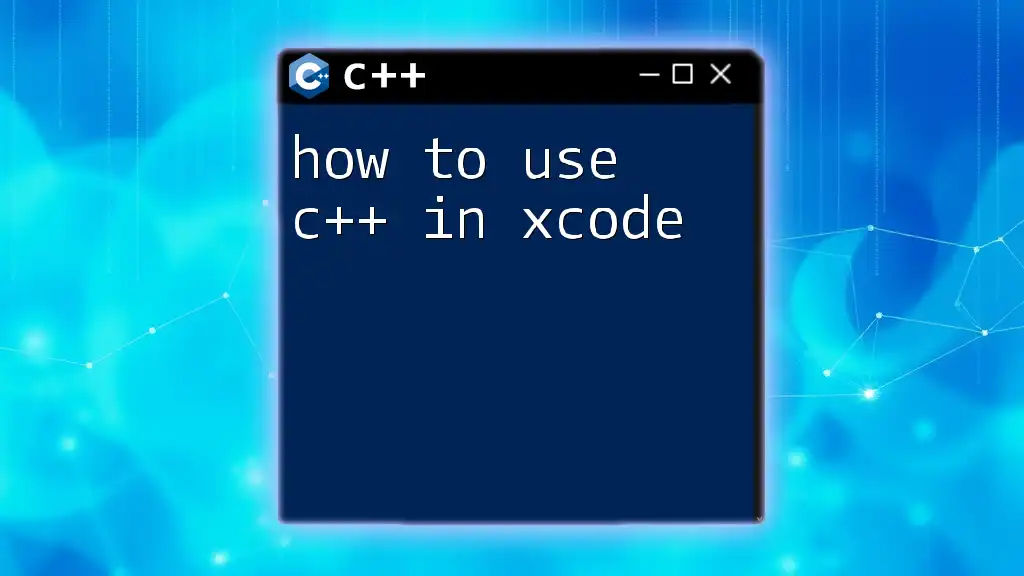
FAQs about C++
How does C++ compare to other languages?
C++ balances simplicity with powerful features, offering both low-level access similar to C and high-level abstractions found in newer languages. This duality grants developers fine control over system resources while enabling rapid application development.
Why is C++ still relevant today?
C++ is still widely taught, used, and respected due to its performance characteristics, versatility, and the ability to influence system resources effectively. Industries requiring high-performance applications continue to rely on C++ for its strengths.
What resources are available for new learners?
From online courses to extensive libraries and tutorials, numerous resources are available for those looking to learn and master C++. Engaging with active community forums and courses can significantly enhance your comprehension and practical application of C++.

